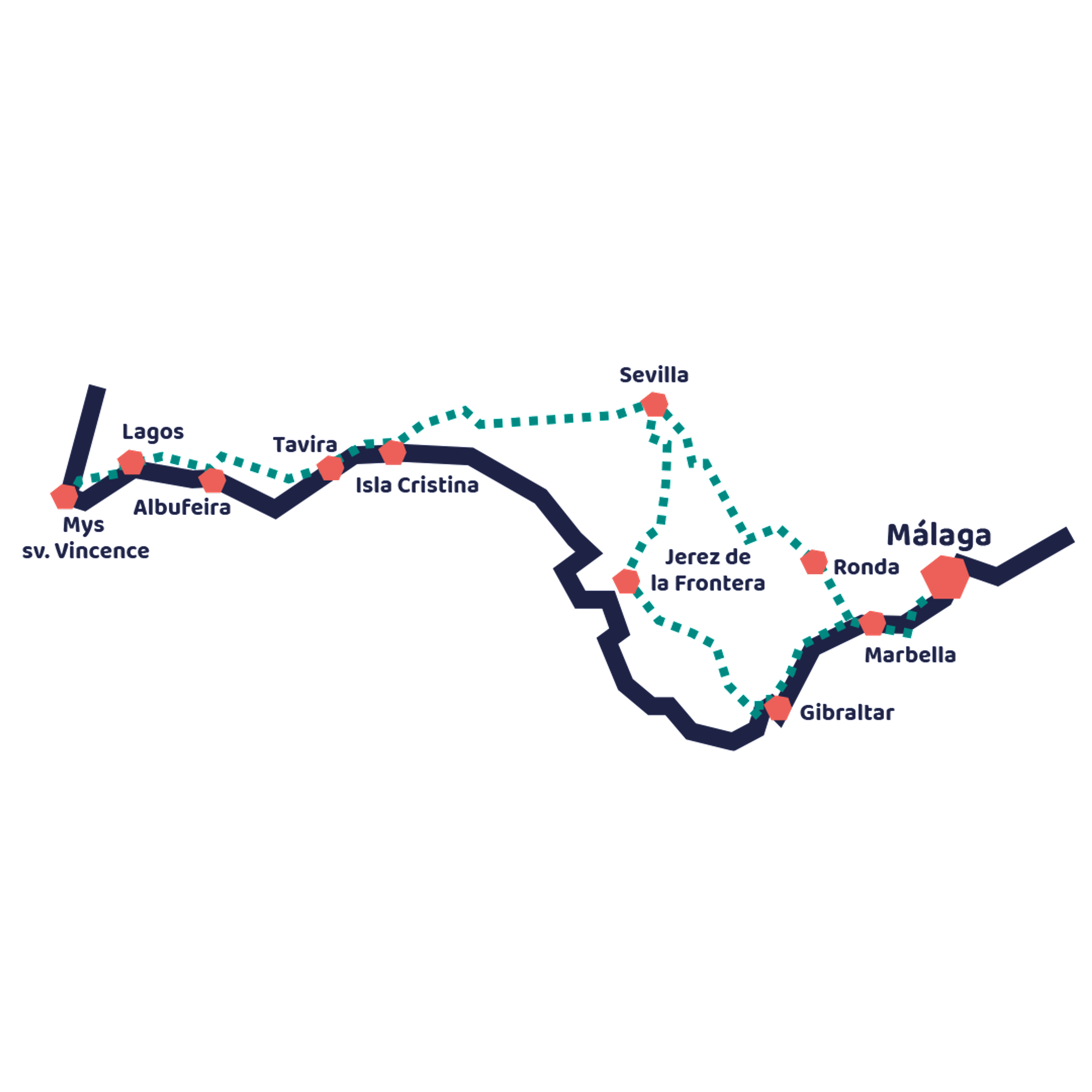Campiri
Spain to the ends of the earth. 14+ days, not just on the coast
Two territories (actually three with Gibraltar), countless beautiful villages and beaches, and a bit of city bustle, jugs of sangria and evening tapas bars. Make more time and be inspired by our longest circuit through Andalusia to Portugal.
04.10.2022
2 minutes of reading
Přidejte se ke Campiri komunitě.
Zajímají vás podobná témata? Přidejte se do naší facebookové skupiny Cestujeme udržitelně s Campiri a sdílejte tipy s ostatními karavanisty.
Přidat se do skupiny
